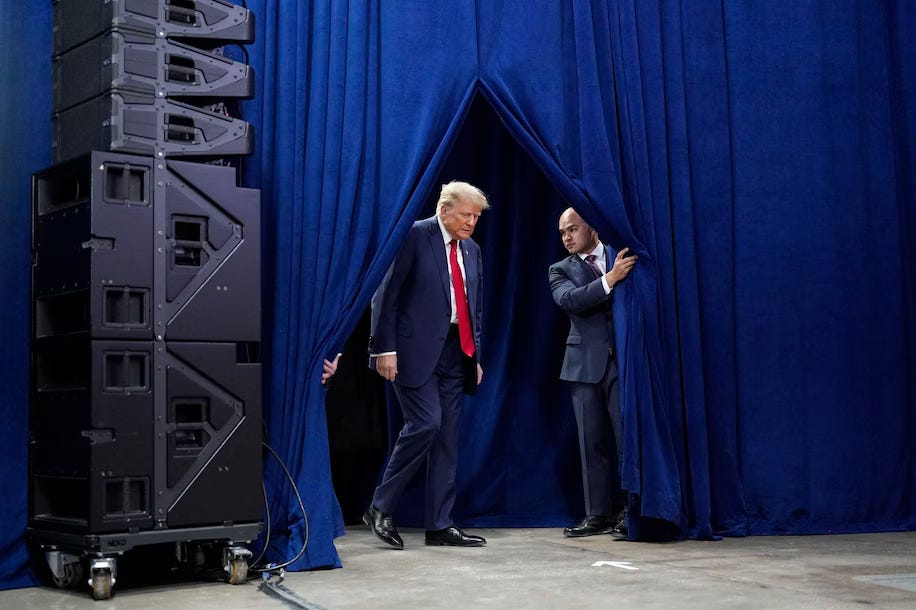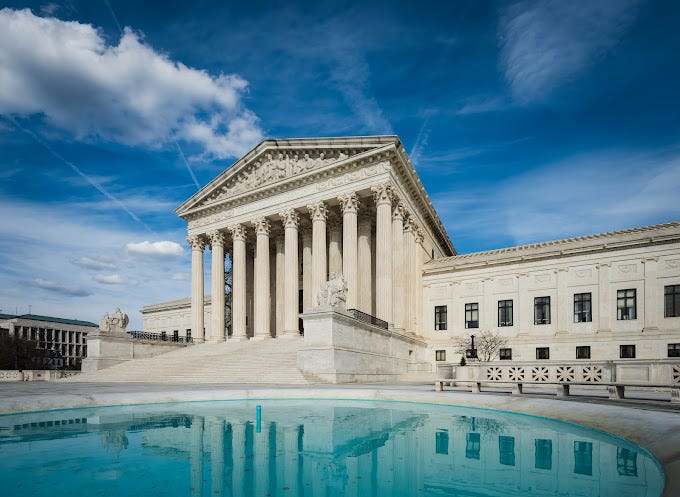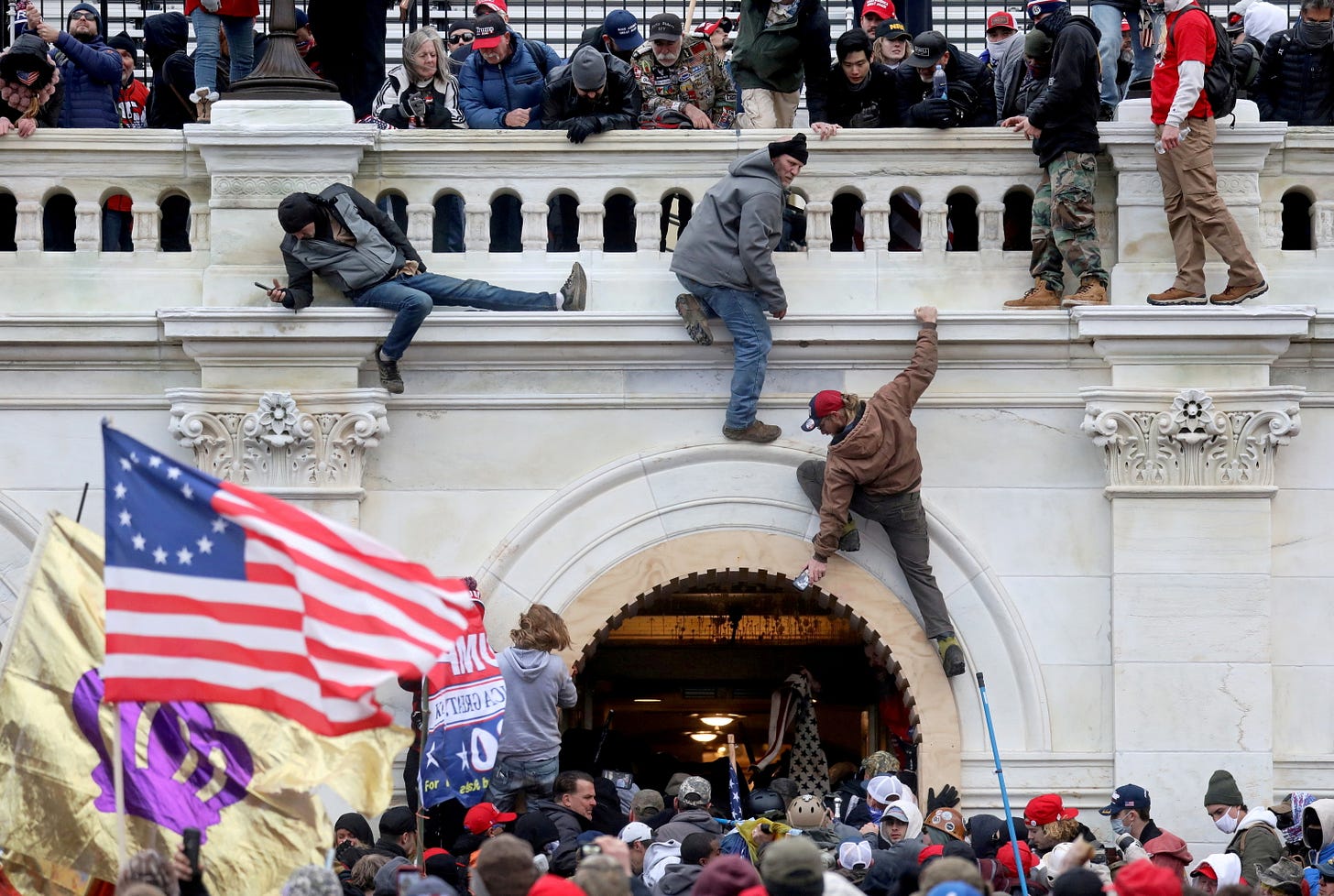Facing 14th Amendment Disqualification in Various States, Donald Trump Moves the US Supreme Court
5 Grounds of Trump's Legal Challenge in Supreme Court of the United States of America: The Buck Stops Here.
Trump’s Plea in the Supreme Court
The Republican Party front-runner, Donald Trump, submitted a comprehensive brief to the United States Supreme Court on Thursday, 18th January 2024, with the objective of securing his place on the election ballot. This legal action is a direct response to a series of legal, judicial, and executive/administrative orders from various states, aimed at preventing his name from appearing on their ballots. The brief emphatically states, “The court should put a swift and decisive end to these ballot-disqualification efforts, which threaten to disenfranchise tens of millions of Americans and which promise to unleash chaos and bedlam if other state courts and state officials follow Colorado’s lead and exclude the likely Republican presidential nominee from their ballots.”
Understanding the US Electoral System
For those of us in India, who may not be familiar with the legal and constitutional system surrounding the election of the US President, it may seem perplexing as to how a former President and front runner of the GOP can be kept off the ballot in a few states, given that the law of the land, under the US Constitution should effectively be the same.
State Autonomy in Presidential Election
The nature of the federation constituting in the United States of America allows all the 50 constituent states to have their own laws and rules regarding US presidential polling. This means that state courts and administrative authorities are fully competent to determine a candidate's qualification for the presidential poll, as far as that particular state is concerned, subject, of course, to the US Constitution. The US Supreme Court normally does not intervene unless a significant question of constitutional importance arises, which seems to be the case now.
The Historical 14th Amendment
The 14th Constitutional Amendment, enacted in 1867, contains a critical provision in Section 3, stating: "No person shall be a Senator or Representative in Congress, or elector of President and Vice-President, or hold any office, civil or military, under the United States, or under any State, who, having previously taken an oath, as a member of Congress, or as an officer of the United States, or as a member of any State legislature, or as an executive or judicial officer of any State, to support the Constitution of the United States, shall have engaged in insurrection or rebellion against the same, or given aid or comfort to the enemies thereof." Initially designed to bar former Confederates and their supporters from public office in the post-Civil War era, this provision has yet to be invoked in the context of a US presidential election.

Trump’s Legal Challenges
The questions of law raised by Donald Trump's legal team are as follows:
The US President enjoys total immunity in respect of all actions taken during the presidency, regarding criminal prosecution and civil suits.
Section 3 of the 14th Amendment does not apply to the office of the President of the United States.
The riot at the Capitol on January 6th was spontaneous, and Trump did nothing that could be seen to abet the same – this riot cannot be described as an insurrection within the meaning of the 14th Amendment.
Donald Trump has neither been found guilty in any criminal proceedings of having abetted this so-called insurrection, thus, the 14th Amendment cannot be invoked against him.
Additionally, Donald Trump has not been found guilty in any civil lawsuit of instigating this insurrection.
To prevent a multiplicity of litigation from different states, Trump's legal team has approached the Supreme Court for a decisive verdict to remove the uncertainty looming over the Presidential Poll process. This petition is accompanied by an amicus application signed by as many as 180 Republican Congressmen.
Awaiting the Supreme Court’s Decision
Unlike in India, the US Supreme Court, comprising nine judges, meets together to decide such questions. Its calendar is already overloaded, and it remains to be seen whether Trump's case will be prioritized, especially since the Colorado State Supreme Court and Executive authorities in the State of Maine have already passed a verdict disqualifying him, even as a full bench of the Colorado supreme court considers his appeal.
While the legal saga unfolds, it will likely be accompanied by the looming possibility of four criminal trials Trump faces, apart from a New York civil lawsuit, where the hearing has concluded. If a guilty verdict is reached in any of these criminal cases, a separate legal and constitutional question will arise regarding Trump's eligibility to run for the presidency.
"We live in interesting times, and each week will reveal something new, as the United States of America formally heads into the campaign season," observes a political analyst.
Trump’s Warning of ‘Bedlam’
Donald Trump urged the Supreme Court on Thursday to ensure his name can appear on election ballots nationwide, warning of “chaos and bedlam” if the justices do not reverse Colorado’s top court. His attorney asked the justices to put a “swift and decisive end” to efforts in more than 30 states to remove him from ballots based on the 14th Amendment.
Speaking to reporters, Trump warned of "bedlam in the country" if criminal charges against him succeed in damaging his candidacy, describing it as "a very bad precedent" and "the opening of a Pandora's box."
Impact of the Supreme Court's Decision in the Presidential Election
The brief filed on Thursday prepares for the oral arguments in the Colorado ballot case, scheduled for February 8 — a date reflecting the Supreme Court's significant role in this year's presidential election. Donald Trump, as outlined previously, has robustly contested the Colorado decision on multiple fronts. Legal experts believe that if the Supreme Court Justices rule in his favor on any of these arguments, it would mark a crucial victory, ensuring his presence on ballots across all states and territories.
However, these contentious debates have drawn both intense scrutiny and critical analysis from prominent legal scholars. The forthcoming decision of the U.S. Supreme Court is crucial not only for clarifying the uncertainties surrounding Trump's candidacy but also for shaping the dynamics of the presidential campaign, anticipated to be both intensely resonant and politically charged. This imminent ruling stands to significantly impact the direction of the election, potentially setting a benchmark for the conduct of future electoral processes in the United States.




